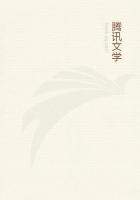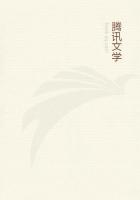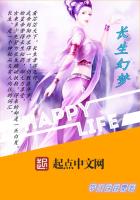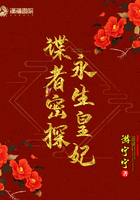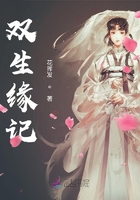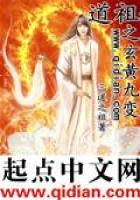In revenge, this philosophy finds itself in a relation cruelly exact with the half-civilization of our day. By that I mean the poorly educated individual who has rubbed against knowledge enough to justify a certain egoism, but who is too poor in faculty to conceive an ideal, and whose native grossness is corrupted beyond redemption. Under his blouse, or under his coat--whether he calls himself Renardet, as does the foul assassin in "Petite Roque," or Duroy, as does the sly hero of "Bel-Ami," or Bretigny, as does the vile seducer of "Mont Oriol,"or Cesaire, the son of Old Amable in the novel of that name, --this degraded type abounds in Maupassant's stories, evoked with a ferocity almost jovial where it meets the robustness of temperament which I have pointed out, a ferocity which gives them a reality more exact still because the half-civilized person is often impulsive and, in consequence, the physical easily predominates. There, as elsewhere, the degenerate is everywhere a degenerate who gives the impression of being an ordinary man.
There are quantities of men of this stamp in large cities. No writer has felt and expressed this complex temperament with more justice than De Maupassant, and, as he was an infinitely careful observer of milieu and landscape and all that constitutes a precise middle distance, his novels can be considered an irrefutable record of the social classes which he studied at a certain time and along certain lines. The Norman peasant and the Provencal peasant, for example; also the small officeholder, the gentleman of the provinces, the country squire, the clubman of Paris, the journalist of the boulevard, the doctor at the spa, the commercial artist, and, on the feminine side, the servant girl, the working girl, the demigrisette, the street girl, rich or poor, the gallant lady of the city and of the provinces, and the society woman--these are some of the figures that he has painted at many sittings, and whom he used to such effect that the novels and romances in which they are painted have come to be history. Just as it is impossible to comprehend the Rome of the Caesars without the work of Petronius, so is it impossible to fully comprehend the France of 1850-90 without these stories of Maupassant. They are no more the whole image of the country than the "Satyricon" was the whole image of Rome, but what their author has wished to paint, he has painted to the life and with a brush that is graphic in the extreme.
If Maupassant had only painted, in general fashion, the characters and the phase of literature mentioned he would not be distinguished from other writers of the group called "naturalists." His true glory is in the extraordinary superiority of his art. He did not invent it, and his method is not alien to that of "Madame Bovary," but he knew how to give it a suppleness, a variety, and a ******* which were always wanting in Flaubert. The latter, in his best pages, is always strained. To use the expressive metaphor of the Greek athletes, he "smells of the oil." When one recalls that when attacked by hysteric epilepsy, Flaubert postponed the crisis of the terrible malady by means of sedatives, this strained atmosphere of labor--I was going to say of stupor--which pervades his work is explained. He is an athlete, a runner, but one who drags at his feet a terrible weight. He is in the race only for the prize of effort, an effort of which every motion reveals the intensity.
Maupassant, on the other hand, if he suffered from a nervous lesion, gave no sign of it, except in his heart. His intelligence was bright and lively, and above all, his imagination, served by senses always on the alert, preserved for some years an astonishing freshness of direct vision. If his art was due to Flaubert, it is no more belittling to him than if one call Raphael an imitator of Perugini.
Like Flaubert, he excelled in composing a story, in distributing the facts with subtle gradation, in bringing in at the end of a familiar dialogue something startlingly dramatic; but such composition, with him, seems easy, and while the descriptions are marvelously well established in his stories, the reverse is true of Flaubert's, which always appear a little veneered.
Maupassant's phrasing, however dramatic it may be, remains easy and flowing.
Maupassant always sought for large and harmonious rhythm in his deliberate choice of terms, always chose sound, wholesome language, with a constant care for technical beauty. Inheriting from his master an instrument already forged, he wielded it with a surer skill. In the quality of his style, at once so firm and clear, so gorgeous yet so sober, so supple and so firm, he equals the writers of the seventeenth century. His method, so deeply and simply French, succeeds in giving an indescribable "tang" to his descriptions. If observation from nature imprints upon his tales the strong accent of reality, the prose in which they are shrined so conforms to the genius of the race as to smack of the soil.
It is enough that the critics of to-day place Guy de Maupassant among our classic writers. He has his place in the ranks of pure French genius, with the Regniers, the La Fontaines, the Molieres.
And those signs of secret ill divined everywhere under this wholesome prose surround it for those who knew and loved him with a pathos that is inexpressible. {signature}

